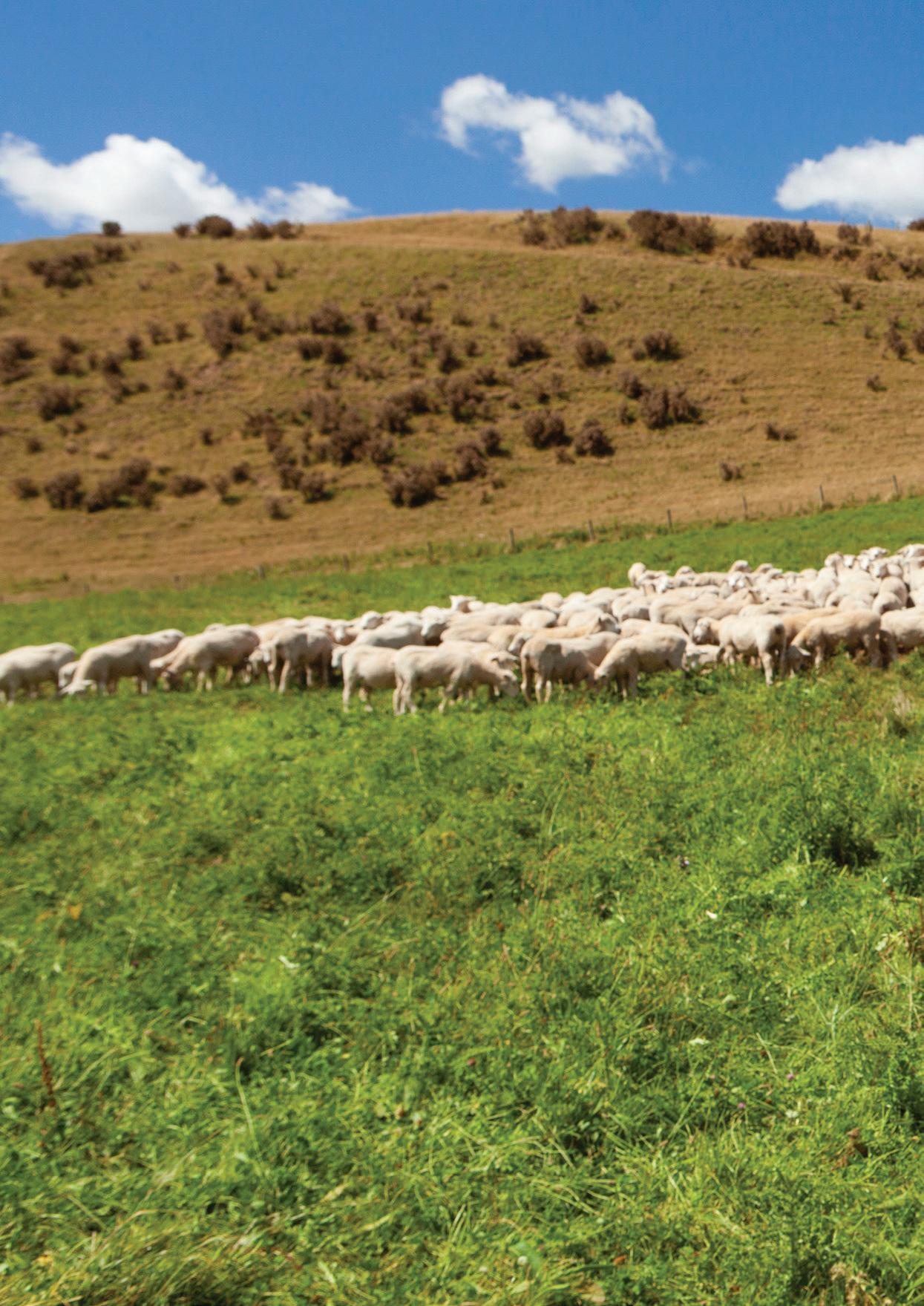NEW STRATEGIC APPROACH FOR KAITIAKI ROLE



HE TANGATA
9 PKW TALENT RECOGNISED BY INSTITUTE OF DIRECTORS Joe and Warwick receive accolades
10 GETTING TO KNOW THE LAY OF THE LAND New kid on the rohe
11 GOVERNANCE AND PERFORMANCE DELIVER POSITIVE RESULTS AGM review
HE WHENUA
18 IWI AND INCORPORATION GO FROM STRENGTH TO STRENGTH New name for Farm 10
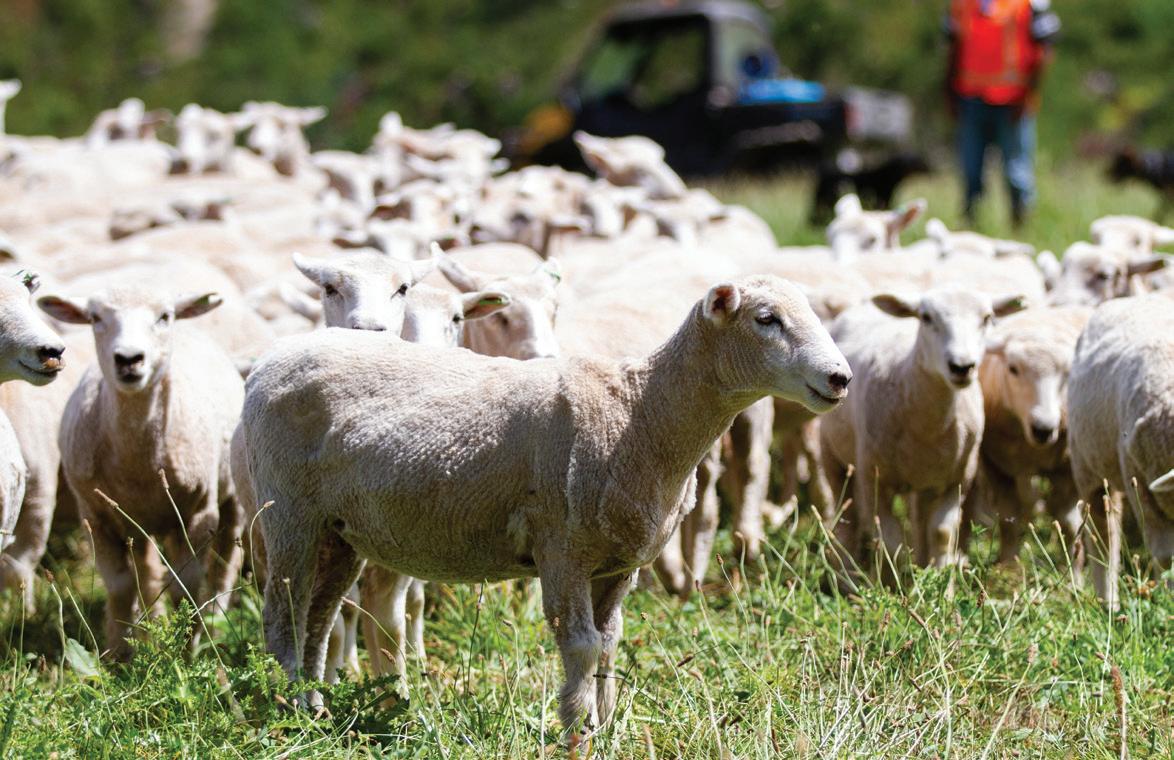
20 FARMING WITH PRECISION Tech delivers business and environmental results
21 EFFLUENT SYSTEM UPGRADE COMPLETE ON FIFTH PKW FARM Another milestone reached
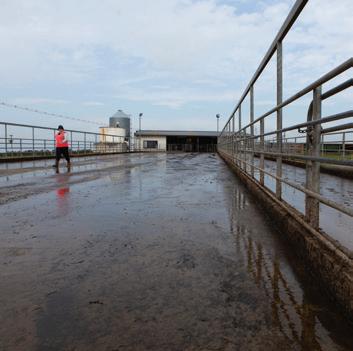
HE ORANGA
25 BUILDING FOR THE FUTURE New partnership brings new scholarship
26 SHAREHOLDER OPINIONS HEARD IN SURVEY RESULTS Guiding strategic direction of PKW
28 CULTURAL SHOWCASE SUPPORTED BY PKW TRUST Pātea Māori Club return to international stage

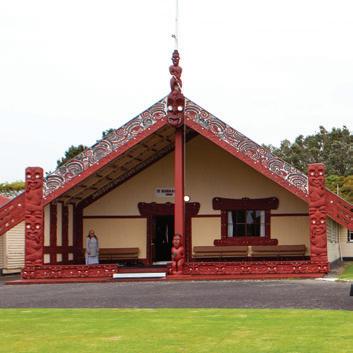
NGĀ PANUI
Saturday 4 May PKW half-yearly meeting with shareholders.
Kairau Marae Matarikoriko Road, Brixton 9:00am
(full details on page 3)
COVER Barry Kete (Ngāti Maniapoto) is the manager of Farm 16 and cares for the foundation flock of PKW’s future sheep dairying business.


PARININIHI KI WAITOTARA
Postal PO Box 241
New Plymouth 4340
Physical 35 Leach Street
New Plymouth 4310
Tel +64 (6) 769 9373
Fax +64 (6) 757 4206
Email office@pkw.co.nz
www.pkw.co.nz
Over the past two years, there has been a lot of information sharing about the implementation of a strategic approach that mitigates our reliance on agribusiness, while maintaining its efficacy.
It has been exciting to see what that diversification might look like and how we might achieve the strategic imperatives we set ourselves beginning 2017.
This time has been vital for planning, for building partnerships, gaining knowledge and building confidence with our shareholders that in order to deliver the prosperity we need to sustain our people in the years and generations to come, we must evolve and change.
Now that planning and talking has come to fruition with the announcement of the creation of a new partnership (Ngāmotu Hotels Ltd) between Parininihi ki Waitotara Inc (PKW), Te Atiawa Iwi Holdings (TAIH), and Taranaki Iwi Holding (TIH) that gives us entry into the tourism sector.
We are also being true to our core strategic pledge to nurture an innovation culture with a commitment to the fledgling Sheep Dairy industry that we believe has the potential to deliver on a global scale.
These developments signal that the kōrero and mahi of the past two years have been successful and we can now see the tangible results that our diversification plans will bring us.
The next two years will see us continuing to carefully and strategically identify opportunities and partnerships that align with our values to deliver on our mission of a successfuly diversified and sustainable Taranaki Māori owned and operated business that provides meaningful opportunity for our people.
Things are about to get really exciting.
Ngā mihi nui
Nā, Warwick Tauwhare-George Chief Executive Officer

iSTUDIOS MULTIMEDIA
Postal PO Box 8383
New Plymouth 4340
Physical 77B Devon Street East New Plymouth 4310
Tel +64 (6) 758 1863
Email info@istudios.co.nz
www.istudios.co.nz
WHENUA MAGAZINE
Editor Warwick Tauwhare-George
Deputy Editor Polly Catlin-Maybury
Creative Direction Sheree Anaru
Photography Quentin Bedwell
Graphic Design Dave Pope, Karere Brown
Bonita Bigham
Polly Catlin-Maybury
Renee Kiriona-Ritete
“These developments signal that the kōrero and mahi of the past two years have been successful and we can now see the tangible results that our diversification plans will bring us.”
NOTICE IS HEREBY GIVEN THAT the half-yearly meeting of Shareholders will be held at Kairau Marae, Matarikoriko Road, Brixton, Taranaki on Saturday 4 May, 2019.
9.00am Pōwhiri and registrations
10.00am Meeting commences
BUSINESS:
• Apologies
• Presentation on performance to 31 December, 2018
• General Business
NOTICE IS HEREBY GIVEN THAT the half-yearly meeting of Beneficiaries will be held immediately following the meeting of the PKW Incorporation.
BUSINESS:
• Presentation on performance to 31 December, 2018
• Presentations from Trust recipients
• General Business
Warwick Tauwhare-George SECRETARY
A tour of the PKW Whare and its offices is being organised following the half-yearly meeting to view the latest developments within the whare. Those shareholders wishing to visit the tari, please contact Aimee at the PKW office by 26 April, 2019.
P 0800 759 462
E office@pkw.co.nz
The tour is dependent on bookings.

He rangi tā matawhāiti, he rangi tā matawhānui.
A person with narrow vision has a restricted horizon; a person with a wide vision has plentiful opportunities.
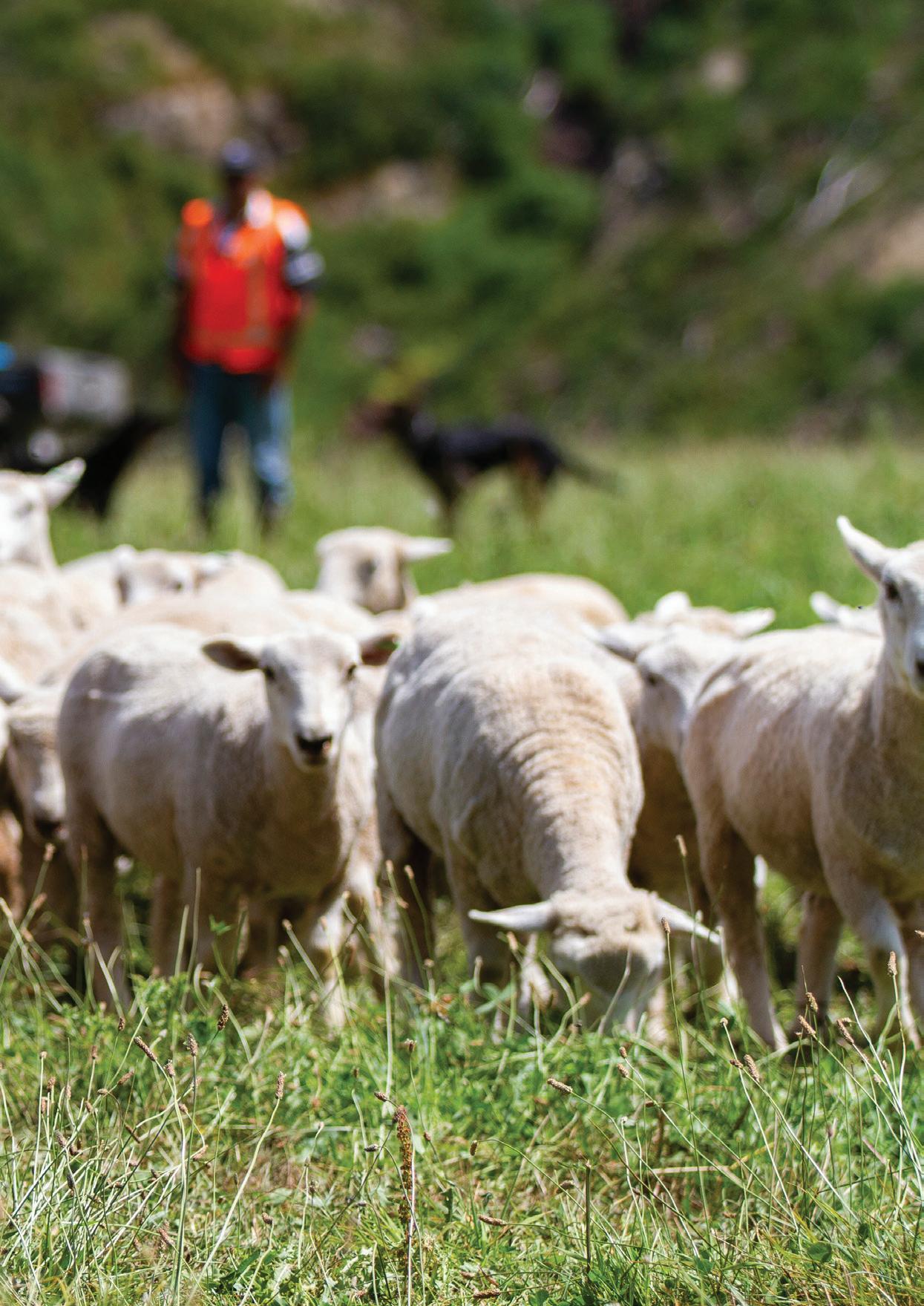
The implementation of the PKW diversification strategy is leading the organisation into a period of focused investment to deliver improved outcomes for the business and its shareholders.
Achieving a more balanced investment portfolio by leveraging PKW’s core asset, its whenua, to invest in opportunities that will secure sustainably increased return rates has been a key focus of the PKW strategy for the the last 2.5 years. Now the plan is being put into action with the announcement of two new investment initiatives.
“This is an exciting time for PKW as we are moving progressively forward by making tangible investments through the identification of opportunities and partnerships that align with our core values and strategic goals,” says Warwick Tauwhare-George, CEO of PKW. “These investments are ones that have been carefully considered to deliver long-term benefits, as well as helping other Māori businesses and organisations to follow their aspirations.”
The purchase of the Novotel New Plymouth Hotel for $23 million was made possible through the partnership of three Taranaki Māori entities - Parininihi ki Waitotara Incorporation (PKW Inc), Te Atiawa Iwi Holdings (TAIH) and Taranaki Iwi Holdings (TIH). This new joint venture took over the operation of the hotel on New Year’s Day under the name of Ngāmotu Hotels Ltd.
It is the first time that PKW Inc and Ngā Iwi o Taranaki have come together in this way and shows a promising start to further potential partnership initiatives in the future.
“The Novotel New Plymouth Hotel is a very high-performing facility under the Novotel brand, and we anticipate an excellent return on investment year-on-year,” said Warwick. “This is

our first exciting step into the tourism sector and I am keen to see where it will lead us, given the positive outlook for visitor growth to Taranaki.”
The number of visitors to the region reached 1.1 million last year, which is equal to just over 2.1 million guest nights. This helped visitor spend across the region increase to $400m, which placed Taranaki as ninth largest region in NZ by visitor spend, and the second-largest year-on-year growth rate.
“These investments are ones that have been carefully considered to deliver long-term benefits...”
Warwick Tauwhare-George
The Taranaki regional economic development strategy ‘Taranaki Visitor Sector – Action Plan’ has forecast 7.5% annual visitor growth to 2025 with annual visitor numbers increasing from 1.1m to 1.8m, and visitor spend up from $400m to $600m.

“Our involvement in the hotel opens up potential opportunities for our people in lots of different directions,” says Warwick. “We will take our time to consider the options and make

decisions that are in the shareholders’ interests. Exciting times are ahead.”
PKW Farm 16, on Tiromoana Road near Eltham, holds another exciting proposition for the organisation in the shape of 300 Coopworth ewe lambs – the starting point for a sheep dairying proposition. Sheep dairying is an emerging industry that offers significant potential for investors, driven by high consumer demand for environmentally sustainable, alternative milk products. Although
sheep milk farming is present in New Zealand, the Government via the Provincial Growth Fund has started a 14-month feasibility study which will assess the economic viability of developing a nationwide sheep dairy industry.
The study will look at a national business case to identify export opportunities, estimates of the milk volumes required to meet potential demand, and the best locations for processing plants.
“We will take our time to consider the options and make decisions that are in the shareholder’s interest. Exciting times are ahead.”
Warwick Tauwhare-George
“I’ve bought myself a drone,” he says delightedly. “I’ve been practising with it and I am about ready to fly it over some of the farms so I can really get to know them.”
Craig has taken over from Ranald Gordon as Assets and Valuation Manager and has been busy learning the ropes from his mentor for the past five months.
He has responsibility for 20,000ha of corpus land, the remaining whenua of the 80,000ha that was set aside as settlement reserves for Taranaki Māori following the 1860s land confiscations.
While PKW owns the land, 262 perpetual leases cover it, each with a seperate legal title giving the lessee uninterrupted rights to the land. Following a change in legislation in 1997, these leases are reviewed every seven years.
The rent review period between PKW and the West Coast Lessees’ Association is a complex process for all parties with both sides appointing their own valuers to jointly determine a fair market rental value.
“Ranald has been passing down his words of wisdom and the wealth of knowledge that comes from being 30 years in the role,” says Craig. “I am very much enjoying the wide variety the job brings with it, it’s very different to what I have done before.”
“I really want to get to know the rohe well, which is where the drone comes in. Some of our lessee land can be pretty inaccessible so veiwing it from the air will help me identify the land contour, where the rivers and streams are and how that relates to its monetary value.”
Craig joins PKW from a prominent local rural valuation practice. Originally from Dannevirke, he lives in New Plymouth with his wife, Justine, a Taranaki girl raised in Toko, and his daughters, Katie and Zoe.
“I am looking forward to building strong relationships with PKW leaseholders,” he says. “I am here to listen and create partnerships where we can work together for the mutal benefit of all.”
Retiring Ranald is a modest man who likes to keep a low profile, but Shane Miles, General Manager Ahuwhenua, is in no doubt about the contribution he has made to the wider PKW Whanau, and PKW aspirations over the years.

“Ranald was instrumental in making the seven-yearly rent review process a much more collegial process rather than an acrominious one,” he says. “It’s a very complex situation and Ranald has worked hard to make things as transparent as possible. He has contributed significantly to the success of PKW and I wish him well in his retirement.”
Ranald’s time at PKW was recognised and celebrated at a hui late last year made up of PKW colleagues and wider whānau but another celebration is planned for May, when he finally leaves the incorporation.
He says he has loved every minute of his time at PKW and wishes Craig all the best for the future.
New recruit Craig Magnussen is using the latest technology to explore the whenua.
The location of the 2018 Parininihi ki Waitotara AGM was a reminder to all those who attended of the history of the organisation and the challenges its people have faced and overcome.
Held at Owae Marae in Waitara, in the rohe where the first fateful shots were fired at Te Kohia Pā on 17 March, 1860, the meeting began with an acknowledgement of the past.

A review of the achievements of the past year with regard to the organisation’s values of Manaakitanga, Kaitiakitanga, Whakapono, Kotahitanga and Whanaungatanga
and the strategic imperatives of business optimisation, seeking partnerships, diversification and lifting outcomes then followed, presented by Hinerangi Raumati-Tu’ua, Chair of the PKW Incorporation. These included increased engagement with shareholder whānau, the development of the Kaitiakitanga strategy and the naming of Te Ruru.
The accounts were presented, which reflect a more ‘normal’ year for the core agribusiness operations, with PKW posting an after-tax profit of $4.9m for the financial year 17/18.
Total shareholder equity rose by 1.4% to $243.3m (FY16/17 $240m).
A governance model review for PKW Farms LP was presented, which recommended a change in board
structure better suited to focus on the seperate key strategic areas. A new Board consisting of two independent directors for consistency and two elected Board members from the Committee of Management (CoM) based on their skillset will oversee PKW Farm LP. This will be in place by the end of the year.
Consideration of the current CoM model and a review of the PKW Trust Board will follow in due course. Shareholders also approved the dividend payment of $1.30 per share.
Warwick Tauwhare-George, PKW CEO took the floor to present his report to the hui.
“Warwick spoke of the commitment of our people during the year and the progress of the business to date but the real highlight of his kōrero was his insight into our diversification
strategy,” says Jacqui King, PKW Head of Corporate Services. “The results of our planning stages are now being seen with tangible investments being made. It is an exciting time with the development of new partnerships and finding new directions for the business to go in pursuit of our strategic goals.”
Mitchell Ritai, General Manager Shareholder Engagement, presented the Kaitiakitanga Strategy and explained the framework of actions that aim to really define what it means to be a kaitiaki of the land.

Hinerangi Edwards, Chair of the PKW Trust, presented the Trust’s annual report and spoke of the strong asset base of more than $3m that helps fund the work it does.
A $14k increase in grant and scholarships took place last year, with
232 grants and scholarships awarded in comparison to 197 last year. This means an additional 35 uri were given support to fulfill their aspirations.
“Hinerangi was also pleased to announce four new joint scholarships with our partners Victoria University of Wellington, Meridian Energy and Marsh Insurance Brokers,” says Jacqui. “The Trust will continue to collaborate with iwi and key suppliers to establish more scholarships and support a pan-tribal kaupapa to ensure support is there for all Taranaki Māori.”

After the hui, a feast of kai including milk and cheeses from Fonterra, Rockit apples and kōura was served while kapa haka group Te Kāhui o ngā Mātā Raukura, from Waitara East School, performed.
“It was great to see so many of our
“It is an exciting time with the development of new partnerships and finding new directions for business...”
Jacqui King
shareholders at the AGM,” said Jacqui. “It was particularly gratifying to note there were a lot of younger people there, taking an interest in their future.”
“Gaining an insight and understanding into the organisation now means PKW will be in good hands when they step up and become custodians of the whenua when it’s their turn.”

$4.9 MILLION AFTER TAX PROFIT
$243.3 MILLION TOTAL SHAREHOLDER EQUITY
Taranaki’s economy has long been shaped by the ups and downs of the global commodity markets, particularly those for dairy and energy exports. But an even greater challenge now looms ahead of the region.
That challenge is one of global emissions and their ecological impact. New Zealand has committed to move to a low-emissions future, and this will have an impact on the region’s economy.
Rather than wait for the change and then respond, Taranaki is taking a proactive approach. Through the Taranaki 2050 process, we are leveraging the opportunity within this challenge to identify a forward plan that will help ensure the region, and its people, are able to maintain momentum.
This plan – the Taranaki 2050 Roadmap – has involved hundreds of people around the region, and there are still opportunities for you to be involved. Head to www. about.taranaki.info/Taranaki2050 to learn more and contribute your ideas to the Roadmap.
On the theme of transition, Venture Taranaki has said farewell to its inaugural chief executive Stuart Trundle, and welcomed Justine Gilliland to lead the next chapter of growth for the organisation, and the region.
Stuart joined Venture Taranaki in 1997, and in 2004 led it to become New Zealand’s first integrated regional

development agency, spanning economic growth and tourism functions. Since then the organisation has gone from strength to strength, gaining numerous accolades and playing an unquestionable role in growing Taranaki and its profile. We wish Stuart and Liz all the best.
Justine returns to the region with extensive experience in the government sector, having most recently held the position of Deputy Director-General Sector Partnerships and Programmes at the Ministry for Primary Industries, where she led multi-million dollar investment programmes spanning sustainable growth, Maori partnerships, and regional development, and the establishment of Te Uru Rakau (Forestry New Zealand) and the 1 billion trees programme.
In passing the leadership from Stuart to Justine, both the foundations and future of Venture Taranaki, and our region, are looking strong.
To find out how Venture Taranaki can help you and your business get ready for the future and be part of our region’s success, talk to one of our Business Advisors now.

PKW’s commitment to its role as kaitiaki of the awa and whenua is taking a more focused approach with the development of a Kaitiakitanga strategy.

The organisation has always been proud to care for its lands by ensuring it complies with environmental legislation, and now plans to use that work as a platform to launch a focused operational framework of projects that will enable the mauri of Papatūānuku to prosper.
“This strategic approach brings a progressive and forward-looking focus to our desire to reconnect our people with the land and the resources it holds while running an environmentally sustainable business with Māori tikanga at its heart,” says Mitchell Ritai, General Manager Shareholder Engagement. “Developed as a result of the kōrero with kaumātua and shareholders about what they felt needed to be done and what their expectations of us as kaitiaki were, this set of commitments lays down our areas of priority for the next 15 years so as to lay the foundations for the next 15 years after that.”
The strategy is not designed to be a quick-fix, short-term approach to perceived issues that may bring limited benefits. A more long-term view is being taken to ensure the health and vitality of the land, rivers and streams continues for many years, and generations, to come.
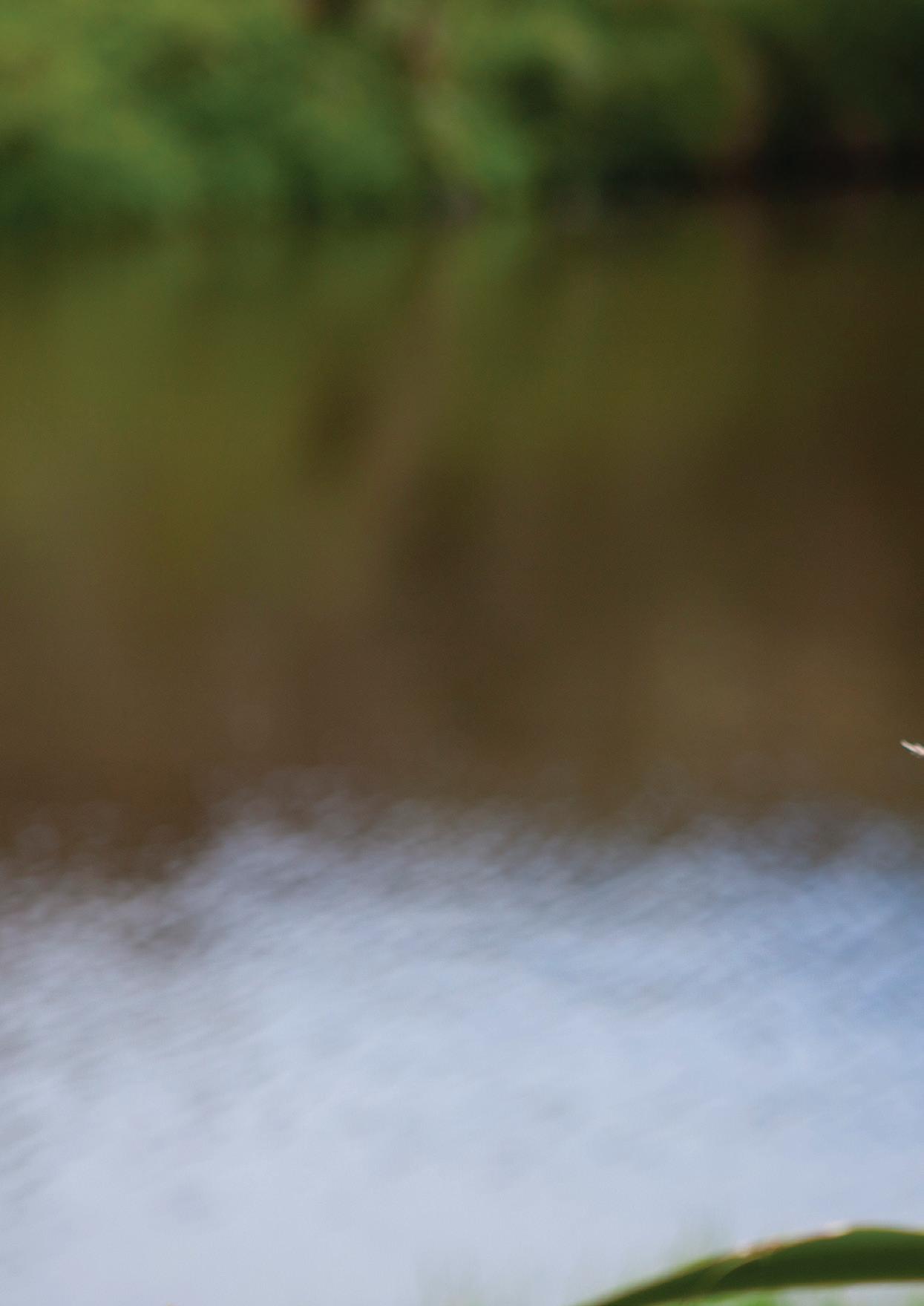
“One of the clear messages we received from the shareholders’ survey was the need for our people and their whānau to reconnect with the land through the cultural harvesting of taonga such as harekeke (flax),” says Mitchell. “But it’s not as easy as just opening the gates. We need to know what taonga we have on our land and in our waterways so we can identify where populations may need support or regeneration to ensure access will be sustainable in the future.”
In view of this, the first projects to be launched as part of the strategy will provide a baseline set of data that maps out the current situation.
Monitoring will be carried out along several waterways across the 27 PKWmanaged farms to measure water quality. The results will form a starting point to help determine what the next steps will be. An audit of culturally important flora and fauna will also take place, enabling data to be added to the anecdotal accounts of where taonga species are, or used to be.
The data collected will give a clearer picture of what is happening and help identify what needs to be measured over time, so any changes – good or bad – can be monitored.
“We are hopeful that we will find those really important species such as īnanga (whitebait), piharau (lamprey), kōura (freshwater crayfish) and kākahi (freshwater mussels), which will tell their own stories of the ecosystems where they live,” says Mitchell.
The practical aspects of carrying out the data collection are being explored now so work can begin in October
“The importance of the whenua and the taonga that live there is a vital aspect of our culture and so plays a major part in defining who we are as a people.”
Mitchell Ritai
– one of the identified months for environmental monitoring. A second survey will be carried out in March 2020.

The identification of historical and significant wāhi tapu is the focus of another project beginning this year.
“The aim is to find out where these culturally important places are and collect as much information about them as possible to share with our whānau,” says Mitchell. “We want to be a repository of the kōrero about these places so that they do not become lost or forgotten. Some sites will be well-known, others will be part
of a whānau whakapapa, and all are important.”
Knowing where wāhi tapu are, and the stories behind them, will help our owners forge a reconnection with these sites of significance and with the whenua.
“The importance of the whenua and the taonga that live there is a vital aspect of our culture and so plays a major part in defining who we are as a people,” says Mitchell. “We stand proud in our role as kaitiaki and look forward to the benefits that the projects will produce.”
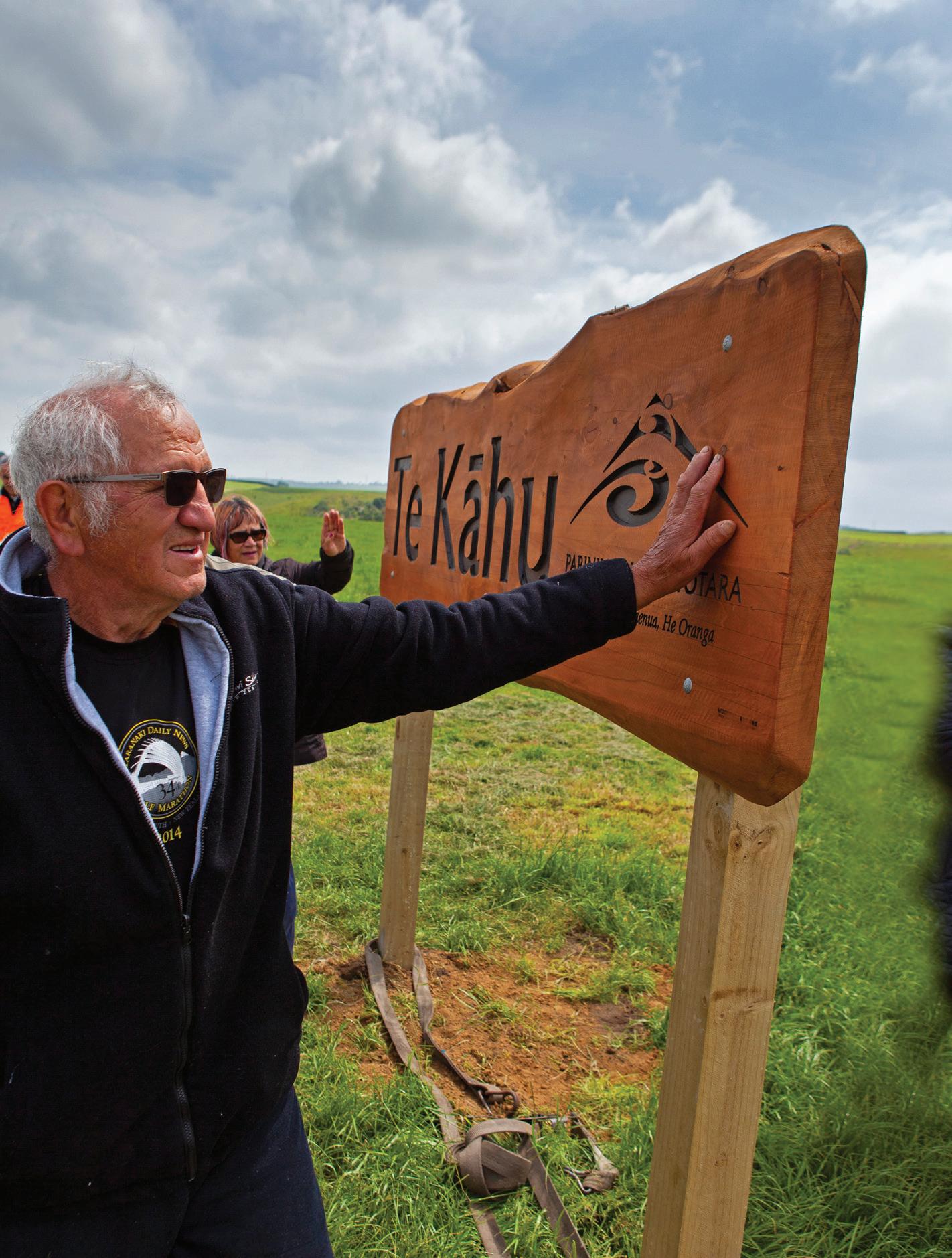

New digital technology is being installed across thousands of hectares of Parininihi ki Waitotara land to help our farmers do better for both the environment and the business.
Shane Miles, PKW General Manager Ahuwhenua, says the investment in the Precision Farming technology is currently being rolled out as part of the incorporation’s kaitiakitanga strategy.
“We realise that to do better for the environment, for our animals and our farmers, we must know straight away, not next month or next year, exactly what is happening on the land — what we are putting on it, what we are taking out of it and what is happening in this paddock or that paddock when our farmers can’t be there.”

“This technology will allow our farmers to capture the data at the touch of a button, analyse it and take immediate action,” says Shane.
Over time, the Precision Farming Platform will allow farm staff to capture
very accurate data on a whole range of matters, including weather information, soil conditions, water consumption, feed volumes and the precision placement of nutrients and effluent.
Shane says, “The data will tell us so much with just one example being the amount of water each of our cows is drinking every day. It will also help us answer questions like, Is there a leak in our water infrastructure? or Are there efficiencies to be learned from one farm to another?”
“We are very excited about this technology.”
Shane says in the past, farmers had to enter a lot of data into the computer by hand which was time consuming and increased the risk of incorrect information.
“The great thing about this technology is that our farmers can get information when they need it to identify if there are any trends and patternsknowledge they will need to improve performance.”
The system will also allow farmers to power up and shut down irrigation equipment at the touch of a button from their office or wherever they might be on the farm, therefore saving them trips to the paddock.
The technology is made up of both software, which comes in the form of a dashboard on a computer, as well as hardware including flow metres, sensors and GPS devices installed throughout the farm.
All the equipment is connected to automatically generate data which is then uploaded to a cloud that farmers can access via their computers.
Shane says the initial parts of the system should be up and running by May, with further modules to be rolled out over coming months.
Since the incorporation embarked on a major project to improve its effluent infrastructure 12 months ago, five of its largest dairy farms now have had new systems installed.


PKW board members got to visit the latest upgrade in December at Farm 3, located on Hastings Road in Matapu.
The 267-hectare farm is home to 750 cows, and this is the first time in almost two decades that its effluent system had been improved.
Shane Miles, General Manager Ahuwhenua at PKW, says the investment in effluent infrastructure is being rolled out under the incorporation’s kaitiakitanga strategy. While PKW already have a number of other fencing and riparian planting programmes in place to protect waterways near its farms, this project would allow it to do even better for the environment.
“PKW, from the boardroom to the
paddock, are always looking for ways to prevent, reduce and mitigate the impact of our business on the land and the water,” says Shane.
“We do this not just so we can say we’re rule compliant but because our organisation is deeply passionate about leaving a legacy of clean land and waterways.”
PKW has invested more than $1m in equipment to install the new waste systems which include larger storage
ponds and specialist equipment that separates solids, like cow tūtae, from liquid.
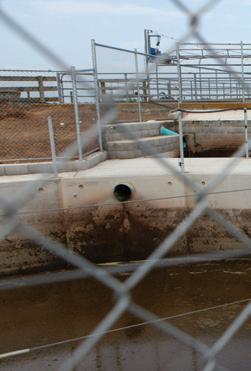
Shane says the new storage ponds hold up to five million litres, much more than the previous ponds which could only take 250,000 litres.
“At a practical level, the larger ponds allow our farmers to store multiple days of effluent, especially in wet rainy weather, so it can be spread on drier days.”
We look after nearly 100,000 hectares of Māori land on behalf of over 97,000 owners. But we only have 60% of the contact details for owners that we need. This means that over 30,000 owners are losing a connection to their whenua. We need your help to locate owners so we can invite them to hui, pay them any funds we hold for them, and understand their aspirations for the whenua.
We support Māori land owners to protect and enhance their land – for now and generations to come.
Maintain your connection. If you or your whānau have new contact details, please let us know.
0800 WHENUA tetumupaeroa.co.nz

I didn’t know that I had a connection to Māori land, but now – I know exactly what’s happening on the whenua.
Yeah, you play your part, but everyone has a part to play.
The first relationship of this kind between PKW and iwi, Te Korowai o Ngāruahine Pouhautū (General Manager) Allie Hemara-Wahanui says it made sense to work with the Incorporation to offer this scholarship.
“PKW has a solid reputation and capability around offering scholarships, so given that this is a new area for Ngāruahine we have confidence that partnering with them is the sensible thing to do,” says Allie. Worth $2,500 per year to an undergraduate student, (that is, someone studying at Bachelor level at a polytechnic, university or wānanga), the PKW-Ngāruahine scholarship specifically targets students in their second or later years of study in a subject of their choice. New
applications will be accepted for the pūtea every year.
Allie says that the iwi doesn’t have any particular area of study it prefers students to be focussing on and assisting students who have already passed their first year is about supporting those who are most likely to finish their qualifications.
“It was decided keep the field of study open; this is about helping an uri of Ngāruahine to succeed, which ultimately benefits us all.”
Allie says working with PKW increases each organisation’s networks, strengthens whanaungatanga between the respective boards and staff and creates a strong foundation and potential for future projects.
With the relationship and scholarship recently formalised between PKW and Ngāruahine, the decision to work together is one that she hopes other iwi around the maunga may consider following in the future.

“It makes sense to streamline our administrative operations for the benefit of our people, and as iwi establish their own charitable trusts, we should ask ourselves what the purposes and the relationships of these trusts are, given that we are all working for the same people.”
Mitchell Ritai, General ManagerShareholder Engagement at PKW, says the incorporation would welcome the opportunity to work with other iwi.
“It’s important for us to look at these strategic relationships and partnerships and the cultural aspirations of our people,” he says.
“We see iwi as key partners in achieving those aspirations.”
The applications already received for this scholarship will be considered by a joint panel made up of representatives of both PKW and Te Korowai o Ngāruahine and the successful applicant will be announced in the near future.
A partnership between Ngāruahine iwi and PKW has seen the establishment of a tertiary scholarship which aims to build personal and professional capacity for Ngāruahine uri.
The annual shareholder survey is an important way for owners to give feedback to the organisation and help set the agenda for future planning.

This year, for the first time, recipients of educational grants and scholarships in 2017 and 2018 were asked for their opinions alongside shareholders. In total, 141 responses were received and analysed.
While most respondents lived in Taranaki, some participants live further afield across Aotearoa and Australia. However, geographical distance did not divide opinion, with many commonalities evident, especially around retention of the ancestral whenua and what to do with unclaimed dividends.
The overwhelming majority (86%) do not wish to see ancestral whenua being sold under any circumstance, but there is support (65%) for leases on that whenua to be sold as ownership remains with PKW.
Selling general land brings mixed responses with respondents slightly in favour at 55%, whereas there is clear direction at 80% that any funds from sales like this should be used to grow the PKW business or pay off debt.
Unclaimed dividends, some since PKW establishment in 1976, now amount to $4.7m due to various reasons, including succession not being completed through the Māori
Land Court (14% of all shareholders are recorded as deceased), current contact or bank account details being incorrect, or the minimum threshold for payment is not met, i.e. $5 for New Zealand accounts and $100 for Australian.
In addressing this, the clearest preference at 39% is for PKW to keep looking for shareholders or their whānau regardless of how long it takes, with other less favoured suggestions including putting a time limit on successors’ ability to claim, using the money for education purposes or redistributing the shares to the remaining owners.
Kaitiakitanga of the whenua is also by far the most important priority for respondents, with providing community and educational grants, scholarships and dividends the next on the list.
Following that is providing leadership in Taranaki, developing and employing our own people and reasserting cultural identity.
The suggestion that dividends be relinquished, either whole or in part, to support PKW business and Trust activities was met with opposition from 37% of respondents. Just 17% supported the proposition while 48% replied that they would consider it if necessary.
How to manage shares which are
becoming too small to divide between succeeded relatives brought a difference of opinion also, with 36% agreeing or strongly agreeing to whānau trusts being put in place, while 31% had no preference either way and 33% either disagreed or strongly disagreed.
Respondents showed general support for PKW communication methods but are keen for more information, especially about nonfarming investments. They are also comfortable with the current investment strategy but would like to understand the financial reports better.
Half also said they feel connected to the whenua and the desire for more access to the whenua, mostly to visit wāhi tapu, to collect kai and to access resources, eg. harvesting materials for weaving was also important to many.
“The survey results provide strong messages which will help the organisation continue to plan for the future”, PKW General Manager Shareholder Engagement, Mitchell Ritai says.
“This is an opportunty for PKW to have ongoing conversations with the owners to ensure we’re still meeting their expectations.”
Meeting expectations and delivering results is a key part of the PKW kaupapa to focus on the needs and aspirations of its people.
PKW
support for leases to be sold with PKW still owning land support for selling ‘general’ land
want sale funds to either grow PKW businesses or pay off debt
Connection
50% feel connected to whenua but more access required, especially to wāhi tapu.
Unclaimed Dividends

$4.7m
since 1976 want PKW to continue to search for missing shareholders or their whānau
Priorities
1 2 3
Kaitiakitanga of the whenua
Grants/Scholarships Community and educational Dividends
“The survey results provide strong messages which will help the organisation continue to plan for the future.”
Mitchell Ritai
While listening to a friend talk about the global travels of his kapa haka team, Pātea Māori Club’s Miri Snee mentioned how awesome it would be for the club to return to the international stage.
Little did she know that random comment in 2017 would lead to 20 club members winging their way to Europe late last year, courtesy of that same friend.
“Out of the blue he contacted me asking if we would consider going to a folk festival which happened to be in the south of Italy,” says Miri.
A few hui and some serious kōrero later, the club decided to go for it and gained the festival’s approval to attend, all expenses paid. They just had to get themselves there and home again.
After six months of solid fundraising, and with support from PKW, the planning and preparation came to fruition with the rōpū giving daily performances during the nine-day
festival across the region.
It wasn’t all plain sailing while there though. The hilly geography of the nightly festival parades proved challenging for some performers, as was eating pasta and drinking wine at every meal.
“There was no meat and veggies and the vino is customary with every meal. Some of our team got to like the vino,” says Miri.
But it all paled in comparison to interacting with the locals and the similarities they observed between the two cultures, especially the love of sharing music, singing and dancing.
“The Italians are well steeped in their folk culture which is vibrant and family orientated,” says Miri.
“Also the custom of whānau was very obvious, much like our culture. Kaumātua are very much integrated into every-day life, they’re engaged within the whānau, it’s very beautiful to see.”
Five days of sightseeing, at their own expense, saw club members experiencing the sights and sounds of places like Pompeii, Rome, Naples and the Island of Capri.
But Miri says there was another place which had particularly special significance for them.
“We visited the WWI cemetery in Monte Cassino where we paid our respects to those fallen heroes of the 28th Māori Battalion with karakia, waiata, haka and many tears. It was such an amazing privilege to be there.”

Tamariki learning the martial art of Jeff Speakman’s Kenpo 5.0 in North Taranaki are also experiencing stability and a positive influence in their lives, with fantastic results through coupling martial arts and education.
The Kids Empowered Programme was specifically developed at the end of last year to provide sponsored martial arts training and after school academic tutoring for youth by Tessa and Shane Wallacehoskin, owners of New Plymouth-based martial arts company Local Impact Ltd.
“We set up the programme to reach tamariki in our community who would otherwise not have the opportunity of attending martial arts classes or after-school tutoring due to financial restraints,” says Tessa.
PKW has enabled four tamatāne (boys) ranging in age from seven to 11 years from New Plymouth’s kura kaupapa Māori, Te Pihipihinga Kākano Mai i Rangiātea, to be part of Kids Empowered this year.
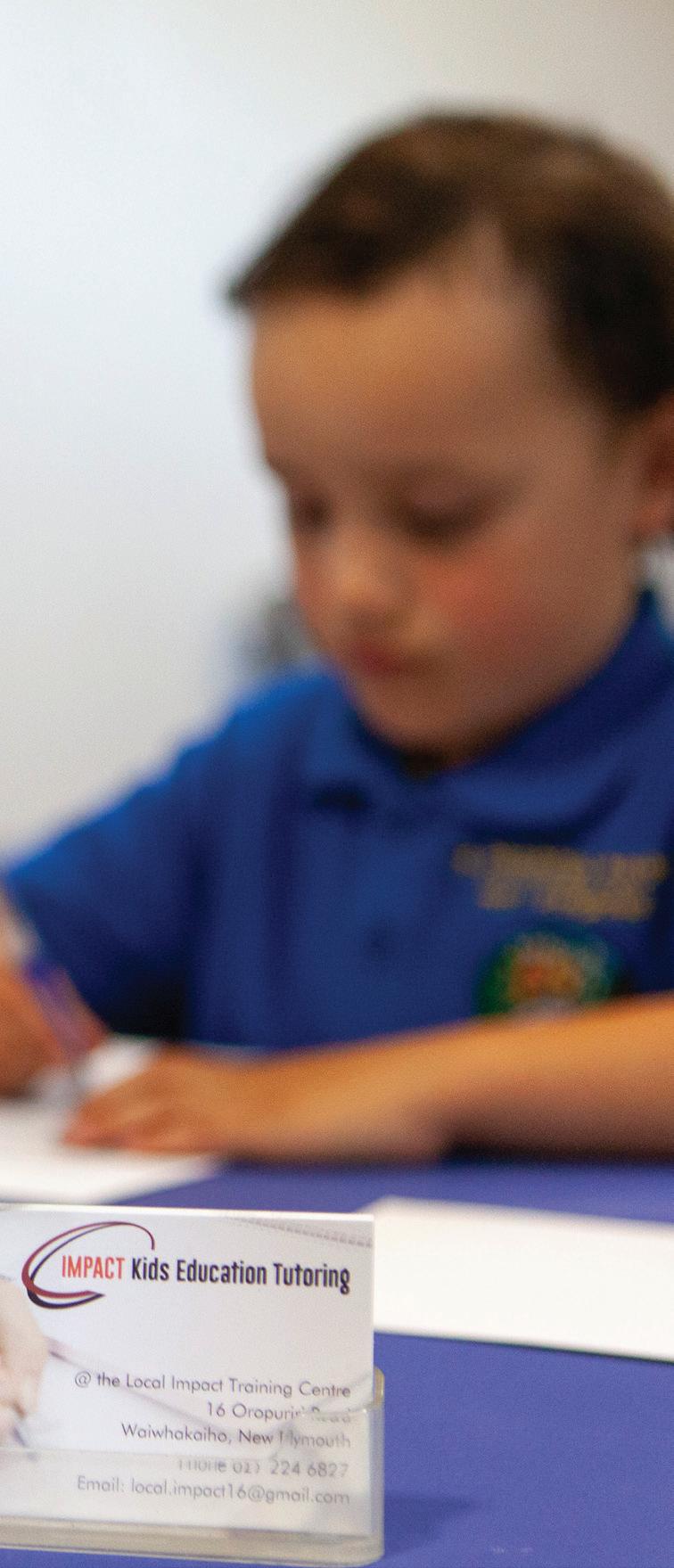
Although Tessa and Shane have backgrounds in sport at the highest levels in Aotearoa - Tessa was a New Zealand softball representative in the White Sox and Shane played for New Zealand Māori League - the couple have hung up their cleats and boots and are now focussing on their children, and the positive things that come from the work they are doing.
“Making a difference in our community is heart-warming and seeing many of our students as class leaders, captains, winning speech competitions, school awards and other sporting achievements is amazing in itself,” says Shane.
Mitchell Ritai, PKW General Manager Shareholder Engagement, says it’s easy to support a programme that aligns so closely with PKW values to build self-esteem in future leaders.
He says Tessa and Shane are incorporating tikanga and reo Māori into the everyday operations of the dojo, which now runs classes for nearly 300 tamariki every week, and

sees the work they are doing as a direct investment into the community with immediate effects.
“This strengthens whānau who want to provide opportunities for their tamariki,” says Mitchell. “It’s a trilateral relationship between PKW, Local Impact and whānau.”
Te Pihipihinga Kākano Mai i Rangiātea’s principal Moana Kake says the Kids Empowered programme adds tremendous value to the pupils’ time at the kura, providing them with skills they can use in all aspects of their lives.
“It provides some stability to those who may not have a male role model in the home, providing extra support for our whānau,” says Moana.
“With that support it’s been really interesting to see the difference in them. Now they’re able to connect the tikanga between the kura and Kenpo and understand they can achieve in both areas.”
Tessa says the support PKW provide
to the programme makes a massive difference, not only for the tamariki they sponsor, but with benefits reaching their whānau and kura in areas like positive behavioural changes and academic advancement.
“The feedback and continued support from parents and caregivers is extremely positive. Our students and families constantly refer to ‘our Kenpo family’,” she says.
“This is how we like it. This is who we are. It takes a village to raise a child. Let’s be that village!”
Below: Tessa (Manukorihi, Ngāti Mutunga, Te Atiawa) and Shane (Taranaki Iwi) with their daughter Symonn Ngahina Wallacehoskin. Symonn is one of the assistant instructors at Local Impact.
Right: The combination of martial arts training, tikanga and te reo Māori helps give pupils on the programme a sense of pride in themselves and their culture, with life-changing results.

